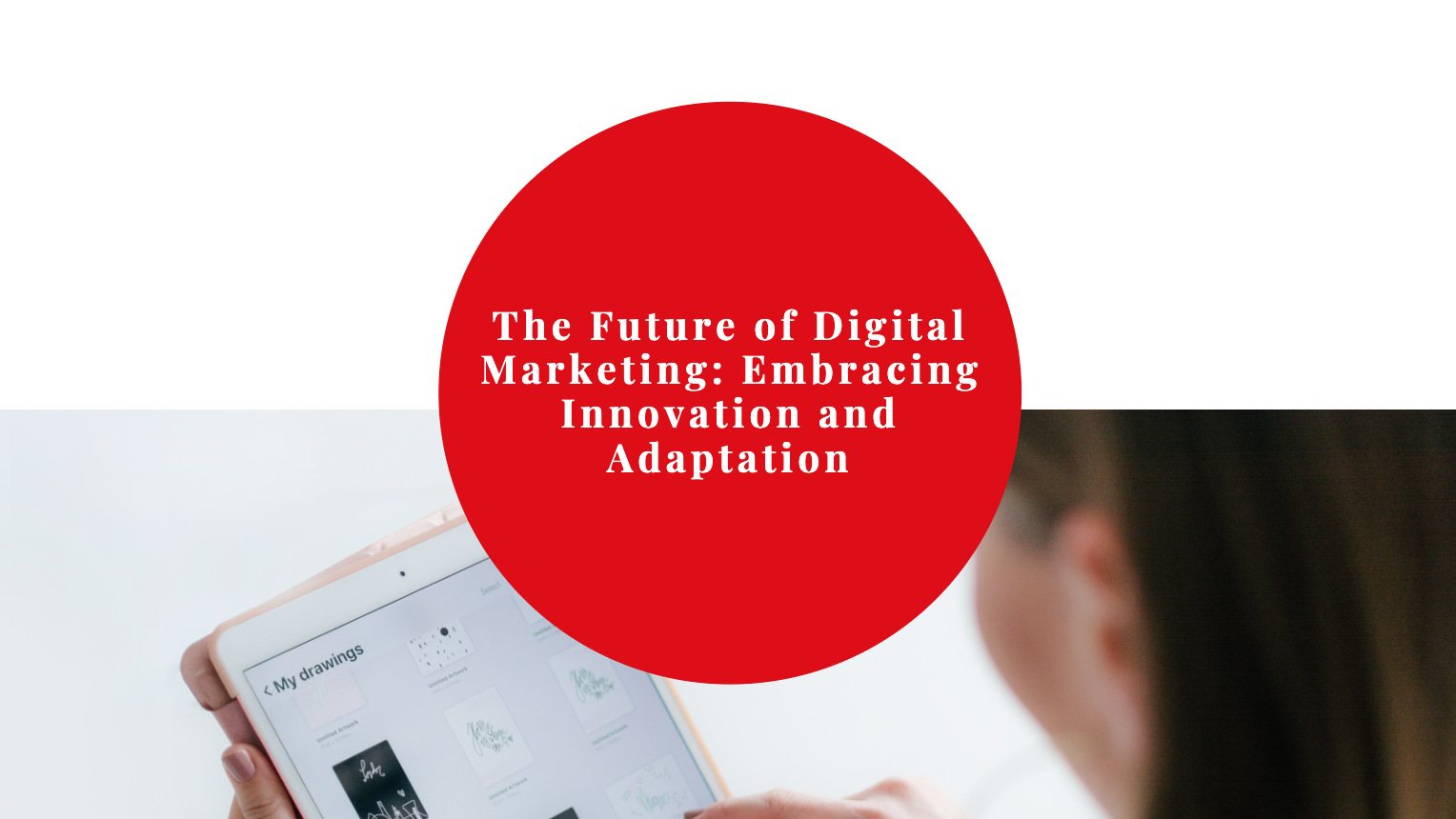The Future of Digital Marketing: Embracing Innovation and Adaptation
Digital marketing has revolutionized the way businesses connect with their target audience, and its impact continues to grow exponentially. As technology advances and consumer behaviors evolve, marketers must stay ahead of the curve. In this blog, we will explore the future of digital marketing, highlighting key trends and strategies that will shape the industry in the years to come.
Rise of Artificial Intelligence (AI) and Machine Learning
Artificial Intelligence and Machine Learning have already made their mark in the digital marketing landscape, and their influence is set to increase further. AI-powered chatbots, personalized recommendations, and predictive analytics are just a few examples of how AI is transforming customer experiences. Marketers can leverage AI to analyze vast amounts of data, automate processes, and deliver highly targeted and personalized campaigns to maximize results.
Voice Search and Conversational Marketing
The increasing popularity of voice-enabled devices like smart speakers and virtual assistants has given rise to voice search optimization and conversational marketing. Optimizing content for voice search requires a more conversational and natural language approach. Marketers must adapt their SEO strategies to account for voice queries and invest in creating voice-optimized content and voice-based advertising to reach the growing number of voice search users.
Video Dominance and Live Streaming
Video content has become a dominant force in digital marketing, capturing attention and driving engagement. As internet speeds improve and platforms prioritize video content, marketers must embrace video marketing to stay competitive. Live streaming, in particular, offers real-time engagement and authentic connections with audiences. Brands can leverage live streaming for product launches, Q&A sessions, behind-the-scenes glimpses, and interactive experiences, creating a sense of immediacy and fostering deeper connections.
Personalization and Hyper-targeting
With the abundance of data available, personalized marketing will become increasingly important. Customers expect tailored experiences and relevant content. Marketers must harness data analytics, consumer insights, and automation tools to deliver personalized messages, recommendations, and offers. Hyper-targeting will enable marketers to reach specific segments with precision, optimizing conversion rates and enhancing customer satisfaction.
Influencer Marketing Evolution
Influencer marketing is evolving beyond sponsored posts on social media. The future of influencer marketing lies in long-term partnerships, where influencers become brand ambassadors and advocates. Authenticity and genuine connections will be paramount, as consumers become more discerning about influencer endorsements. Micro-influencers and nano-influencers will also gain prominence, as they often have niche and highly engaged audiences.
Augmented Reality (AR) and Virtual Reality (VR)
AR and VR technologies offer immersive experiences that captivate audiences and create unique marketing opportunities. AR allows customers to visualize products in their real environment, enhancing the shopping experience. VR can transport consumers to virtual showrooms, events, or experiences. Marketers can leverage these technologies to provide interactive and engaging experiences that leave a lasting impression.
Data Privacy and Ethical Marketing
With increasing concerns about data privacy and security, marketers must prioritize transparency and ethical practices. Stricter regulations, such as the General Data Protection Regulation (GDPR), are being implemented globally. Marketers need to obtain explicit consent for data collection, ensure data security, and be transparent about how customer data is used. Trust and respect for consumer privacy will be essential to build strong and lasting relationships.
The future of digital marketing is a dynamic and ever-evolving landscape that presents both challenges and opportunities. Embracing technological advancements, understanding shifting consumer behaviors, and adopting innovative strategies will be key to staying relevant and competitive. By harnessing the power of AI, voice search, video content, personalization, influencer marketing, AR/VR, and prioritizing data privacy, marketers can navigate the digital marketing landscape with.




